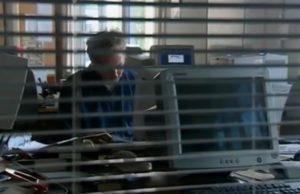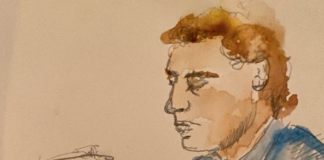- Dark speak easy part one - 18th February 2026
- X marks the spot again - 17th February 2026
- Wordy again part three - 16th February 2026

After 23 years with the BBC, and 39 years as a journalist (when he was trained to use clear and simple language, avoiding jargon), it is now clear to our Editor, Welshman Phil Parry, that recent disturbing events have underlined the importance of how his kind of journalism brings out vital facts.
Earlier he described how he was assisted in breaking into the South Wales Echo (SWE) office car when he was a cub reporter, recalled his early career as a journalist, the importance of experience in the job, and making clear that the‘calls’ to emergency services as well as court cases are central to any media operation.
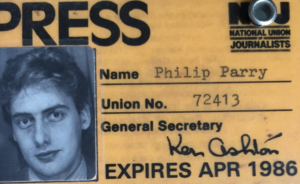 He has also explored how poorly paid most journalism is when trainee reporters had to live in squalid flats, the vital role of expenses, and about one of his most important stories on the now-scrapped 53 year-old BBC Wales TV Current Affairs series, Week In Week Out (WIWO), which won an award even after it was axed, long after his career really took off.
He has also explored how poorly paid most journalism is when trainee reporters had to live in squalid flats, the vital role of expenses, and about one of his most important stories on the now-scrapped 53 year-old BBC Wales TV Current Affairs series, Week In Week Out (WIWO), which won an award even after it was axed, long after his career really took off.
Phil has explained too how crucial it is actually to speak to people, the virtue of speed as well as accuracy, why knowledge of ‘history’ is vital, how certain material was removed from TV Current Affairs programmes when secret cameras had to be used, and some of those he has interviewed.
 He has disclosed as well why investigative journalism is needed now more than ever although others have different opinions, how the coronavirus (Covid-19) lockdown played havoc with media schedules, and the importance of the hugely lower average age of some political leaders compared with when he started reporting.
He has disclosed as well why investigative journalism is needed now more than ever although others have different opinions, how the coronavirus (Covid-19) lockdown played havoc with media schedules, and the importance of the hugely lower average age of some political leaders compared with when he started reporting.
It shouldn’t have to be this way.
WE shouldn’t have to bring out the facts, policy-makers should do it, so the public can know the truth. Let me, therefore, spell it out: TOTAL TRANSPARENCY ALLOWS PEOPLE TO DECIDE IF A GOOD OR BAD THING IS BEING DONE IN THEIR NAME!
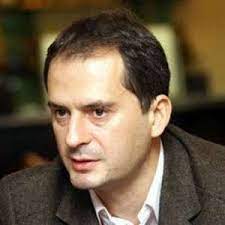
Others, though, appear to think differently, and outrageous events amid the appalling invasion of Ukraine by Russia, have only emphasised this.
For instance, a Moscow court has ordered the arrest in absentia of the Bulgarian investigative journalist Christo Grozev. Mr Grozev’s reporting for the Bellingcat news outlet has angered the Kremlin after he investigated the poisoning of Vladimir Putin critic Alexey Navalny, and of Russian double agent Sergei Skripal. Following the court order, Mr Grozev (who keeps his whereabouts secret for safety reasons) tweeted: “As Dobrokhotov said, ‘Why don’t they just poison us in absentia and just get it over with'”.

But this has not been the only alarming action to have been taken with Russian president Mr Putin at the helm.
A judge rejected an appeal by the Wall Street Journal reporter Evan Gershkovich against the decision to hold him in detention before his trial on charges of ‘espionage’. Mr Gershkovich is the first US journalist to be detained in Russia on ‘espionage’ charges since the end of the cold war and, if found guilty, could face up to 20 years in prison. Russia’s FSB security service has accused him of collecting state secrets about the country’s military for the benefit of US intelligence, charges that have been roundly condemned as political and unfounded.
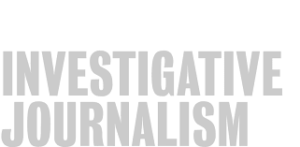

I shake with anger at these awful events. Unless you allow an unfettered free media, terrible things happen in secret, and I’m sorry to say these are not the only examples.
The Chief Reporter for the Mail, the local newspaper at Barrow-in-Furness in Cumbria, Amy Fenton, was forced to flee her home after receiving a torrent of insults and threats, when she reported a local court case. Police said there was a “credible risk to her life and that of her child”.
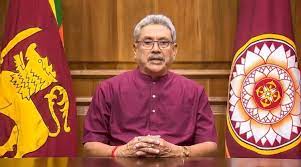
In Sri Lanka, a journalist (who remains anonymous) obtained an official document, indicating that the military leader and former president of his country, Gotabaya Rajapatska, was an American citizen in 2019, which would have disbarred him from running for office, making him an illegitimate ruler.
There have been even worse instances, too, when journalists have attempted to report facts.
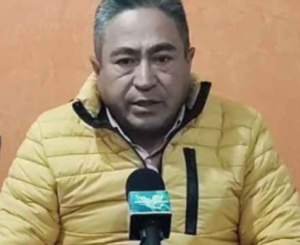
A video journalist called Eduardo/Roberto Toledo died of his wounds in Mexico, after being shot by three armed men on his arrival at the office He was the FOURTH journalist to be murdered in the country in just ONE month. He was killed in the city of Zitácuaro, where he reported for a local news outlet, Monitor Michoacán, and the region is rife with violence, as drug cartels and criminal groups fight to control illegal logging.
The media freedom organisation Reporters Without Borders have said that 47 journalists were killed over the past five years in Mexico (the same number as in Afghanistan), but even more than that ghastly figure is those missing (presumed kidnapped), and reporters who are forced to wear bullet-proof vests while they do their jobs. However, this level of protection didn’t save one journalist in Mexico, Lourdes Maldonado, who was shot dead in Tijuana.

Belarus (a staging post for some of the unprovoked invasion of Ukraine, and where the leader, Alexander Lukashenko, is a vocal supporter of Mr Putin’s), does not allow a free and independent media of the type that Ms Maldonado and the others embody. At least 16 journalists there are behind bars, and riot police are singling out reporters for arrests and beatings at protests, as the media is intimidated.
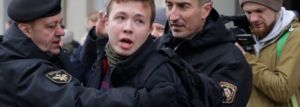
On May 23 last year Mr Lukashenko, forced a Ryanair passenger plane to make an unscheduled stop in his capital in order to arrest the editor of an internet channel, NEXTA, that has been reporting on his recent crackdown. Roman Protasevich, aged 26, was taken off the plane, which was flying from Athens to Vilnius, the Lithuanian capital.


Citing what it said was ‘evidence’ that there were explosives on board, the authorities forced the aircraft to land in Minsk as it passed through Belarusian airspace on its way to neighbouring Lithuania, sending a MiG fighter plane to escort the Ryanair jet down. The state news agency later reported that no explosives had been found, and it seems certain that the incident was invented purely as a way of arresting the journalist.
The worrying news came after Marina Zolotova, the editor of Tut.by, an independent news website in the country, said: “Blue press jackets and press badges have become targets. When journalists go to cover a protest they cannot be sure that they will come home. This is a real war by the authorities against independent journalism and their own people.”

It is clear that Mr Lukashenko is waging a war against journalists who have dared to report on his regime’s brutal crackdown against peaceful protesters. At least eight protesters were killed and hundreds more have alleged torture and rape, in police custody, and journalists are at risk of arrest (or worse) if they report this awful news.
Among the most high-profile of those in prison is Ekaterina Bakhvalova, who was arrested as she filmed riot police firing stun grenades into a crowd demonstrating against the death in police custody of a fellow protester.
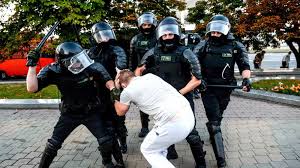
In many countries it appears to be becoming worse for media freedom and investigative journalists like me – while dumbed-down ‘news’ is the order of the day. In total the US Press Freedom Tracker, a non-profit project, says it is examining more than 100 “press freedom violations” at protests. About 90 cases involve attacks.
In Russia the independent media is now very small, but an example of it is a special website which is devoted to the numbers that have been killed (even before the Ukraine invasion, or as Mr Putin prefers to call it “the special operation”).

Sometimes the persecution has official backing. Mr Putin recently signed a law that will let Russia declare journalists and bloggers “foreign agents”, in a move that critics say will allow the Kremlin to target government critics. Under the vaguely worded law, Russians and foreigners who work with the media or distribute their content and receive money from abroad would be declared ‘foreign agents’, potentially exposing journalists, their sources, or even those who share material on social networks to foreign agent status.

This awful situation is set against a very worrying backdrop, where media freedom itself is under threat.
After Slovenia seceded from Yugoslavia in 1991, it gave Radio Television of Slovenia (RTV-SLO) a mandate to report independently, unlike the state propaganda that passed for news under communism. But the Government there is now refusing to pay RTV-SLO’s budget, and wants to pass a new media law that will make it easier to control.

In Latvia, the chief risk is the legal and financing structure. The country’s new public-media law fails to include a set-aside tax, like the television licence fee that funds the BBC (which could now be cut after the Martin Bashir affair, or scrapped altogether if the one-time UK Culture Secretary Nadine Dorries was to be believed) and that leaves it vulnerable to political pressure. It is not clear that the new ‘supervisory’ board in Latvia will be protected from political appointments.
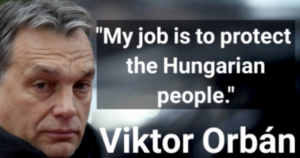
The prime example, of course, is Russia, where RT (Russia Today) is accused of being a mouthpiece for Mr Putin. By the mid-2000s Russian news shows’ agendas were being set at government-led meetings.
When Viktor Orbán won power in Hungary (which has blocked some EU sanctions against Russia) in 2010 he adapted Mr Putin’s blueprint, transforming the state media agency MTVA into a propaganda organ. The group was restructured into a shell company in a fashion that exempts it from the law governing public media, and during the European Parliament elections in 2019, editors at MTVA were recorded instructing reporters to favour Mr Orban’s Fidesz party.
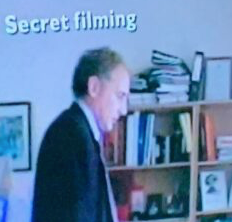
At least I receive no instruction in my journalism – or face jail or worse.
But it shouldn’t have to be up to us!
The memories of Phil’s extraordinary decades long award-winning career in journalism (when he could operate in a free environment) as he was gripped by the rare neurological disabling condition Hereditary Spastic Paraplegia (HSP), have been released in a major book ‘A Good Story’. Order it now.

Another book, though, has not been published, because it was to have included names.
Tomorrow – how more shocking information has come to light about the police, putting centre stage worrying details concerning the behaviour of officers at the biggest force in Wales, and amid mounting alarm that a country with a population of only 3.1 million people has FOUR services!








